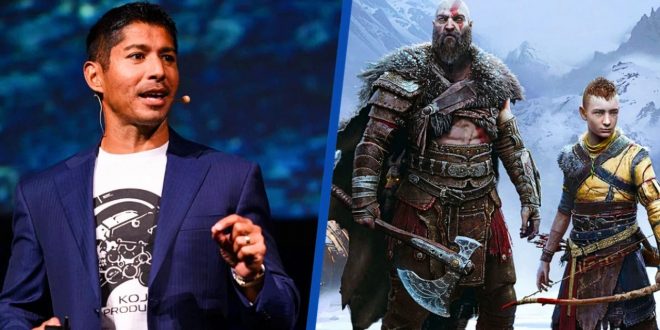We recently came across an interview with Asad Qizilbash, the boss of PlayStation Productions, that has piqued our interest. This interview took place following Sony’s corporate strategy meeting, where they discussed their plans for the future of the company. Qizilbash, a familiar face from past PlayStation events, has now taken charge of the company’s foray into the world of film and TV. His undeniable charisma has propelled him into this new role.
During the interview, Qizilbash shares his intriguing insights on the future of PlayStation and gaming as a whole. From the very beginning, he expresses his thoughts on the future of gaming, foreseeing a world where games become more personalized thanks to technological advancements and AI. This would allow for unique and tailored experiences for every player.
According to Qizilbash, video games are poised to evolve into a medium that deeply resonates with players by leveraging compelling storytelling and immersive design.
Technological advancements have the potential to greatly enhance the emotional depth of games. With the ability to make characters more emotive and expressive, these advancements can pave the way for more evocative storytelling. According to him, this advancement is set to empower a new wave of creators, enabling them to infuse their stories with a heightened sense of emotion.
He adds, “The emphasis will move away from graphics or visuals and towards captivating narratives that leave a lasting impact even after the controller is put down.” Fascinating.
According to Qizilbash, there has been a noticeable shift in the way games are being adapted into films and TV. He expresses his belief that video games are now a source of incredibly imaginative worlds and creative stories. It’s fascinating to see how the landscape is shifting as more and more talented creators are fully embracing the world of video games, drawing inspiration from their own experiences as avid gamers.
It’s undeniable that shows like The Last of Us have achieved immense success, making it difficult to dispute that perspective. However, how does all of this ultimately connect to the world of gaming?
Qizilbash seems to have a strong belief that technology will greatly impact the world of storytelling, making it more accessible and affordable for creators. According to him, Sony is in a unique position to play a significant role in this process. Given the remarkable level of fidelity in modern video games, there is a unique chance to utilize game assets for animation and live-action films, taking advantage of Sony’s impressive volumetric and virtual production capabilities.
He states: “Gaming engines such as Unreal are venturing beyond the realm of games and finding applications in virtual production, allowing creators to prioritize storytelling over practical limitations.”
Now, let’s delve into the fascinating world of artificial intelligence, commonly known as AI. Clearly, this is just a small fragment of a larger, ongoing discussion, but Qizilbash appears to have a generally optimistic view on the potential applications of AI. “Advancements in AI have the potential to revolutionize the way consumers experience games, offering them more personalized and immersive narratives.” For example, in games, NPCs (non-player characters) have the ability to interact with players in a way that feels more personal, responding to their actions.
He continues: “This holds significant value for the younger Gen Z and Gen Alpha audiences, who are the pioneers of the digital era and seek personalization in all aspects of their lives. They crave experiences that hold deeper significance.” Sony is clearly considering the needs of its future audience.
While some of the quotes may come across as corporate and filled with buzzwords, they still provoke thought and contemplation. Qizilbash holds a prominent position at PlayStation, giving him a significant role in shaping the company’s future. According to him, the key lies in captivating narratives that can be seamlessly conveyed through different mediums, possibly with the assistance of AI.
 Load the Game Video Games, Reviews, Game News, Game Reviews & Game Video Trailers
Load the Game Video Games, Reviews, Game News, Game Reviews & Game Video Trailers



